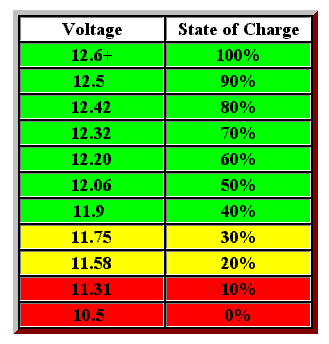I am going to be purchasing a Dometic electric cooler for my Catalina 30 before the spring.
Dometic CFX3 35 - Powered cooler, 36 l
The cooler can be run off of 12vDc or 120vAC
Initially my thought was to run wiring for both and when I plug in at dock it will run off of shore power. However, I emailed Dometic and asked if they are connected to both at the same time will it automatically switch from 12v to 120v and they replied that having both hooked up at the same time will damage the unit.
My two options I could think of were to either
A: Have the wiring hooked up to a transfer switch and when I'm at dock I switch it to shore power and when leaving dock I switch it to DC. My only worry about this is if I forget to switch it I could end up with a warm cooler.
B: is to only wire it for 12vDC and when I am connected to shore power it will still run off the batteries but the shore charger will take over the load. It does have a low voltage limit that if the batteries get to a certain point it will shut off, so I'm not worried about flattening my batteries if I lose shore power while I am away. What I was concerned about is the shore charger constantly cycling on and off every 15 to 30 minutes when the reefer kicks in. Can constant cycling of the shore charger cause damage or am I worried about nothing.
This is the 40A shore charger I have
Sterling ProCharge Ultra Battery Charger | Compass Marine (marinehowto.com)
Dometic CFX3 35 - Powered cooler, 36 l
The cooler can be run off of 12vDc or 120vAC
Initially my thought was to run wiring for both and when I plug in at dock it will run off of shore power. However, I emailed Dometic and asked if they are connected to both at the same time will it automatically switch from 12v to 120v and they replied that having both hooked up at the same time will damage the unit.
My two options I could think of were to either
A: Have the wiring hooked up to a transfer switch and when I'm at dock I switch it to shore power and when leaving dock I switch it to DC. My only worry about this is if I forget to switch it I could end up with a warm cooler.
B: is to only wire it for 12vDC and when I am connected to shore power it will still run off the batteries but the shore charger will take over the load. It does have a low voltage limit that if the batteries get to a certain point it will shut off, so I'm not worried about flattening my batteries if I lose shore power while I am away. What I was concerned about is the shore charger constantly cycling on and off every 15 to 30 minutes when the reefer kicks in. Can constant cycling of the shore charger cause damage or am I worried about nothing.
This is the 40A shore charger I have
Sterling ProCharge Ultra Battery Charger | Compass Marine (marinehowto.com)


